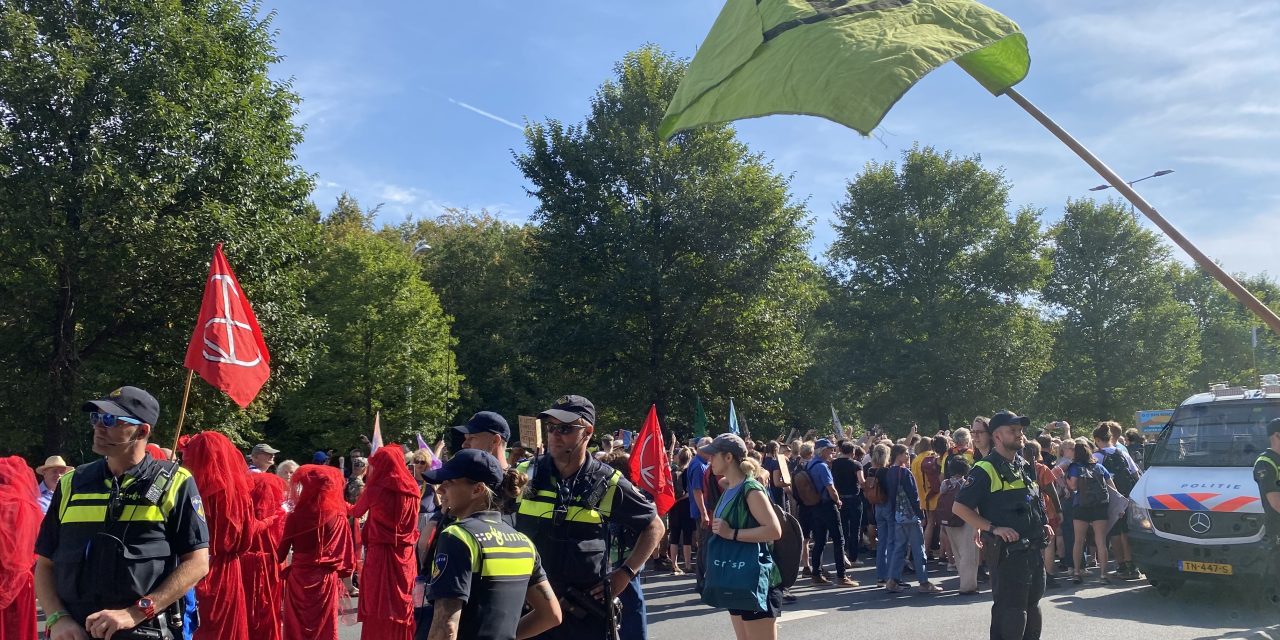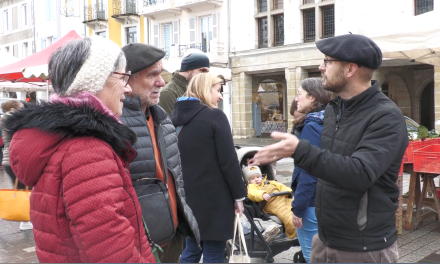On Saturday September 9th, the activist movement Extinction Rebellion (XR) started its ‘stop fossil grants’ campaign, where protesters block the A12-freeway near The Hague daily. This action has caused controversy, with some talking about ‘eco-terror’. This begs the question: Is this indeed a peaceful climate protest or should firmer actions be taken?
The climate crisis remains one of Europe’s most pressing current affairs, especially now that the elections for the House of Representatives in the Netherlands are in sight. Even though the Social and Cultural Planning Office note that a large majority of the Dutch population is taking climate change more seriously, opinions about the severity and the urgency of this matter often differ.
That’s partly due to large companies having engaged in ‘climate denial’ for decades, in which climate change and their contribution to it was either denied or downplayed. This has caused a ‘climate delay’ and has made the matter even more urgent. As far back as 2009, an international agreement among the G20-countries that fossil subsidies must be phased out was already in place. Fifteen years later, these are still in play and even increasing, just like the temperature of the earth. That is why climate activists, such as XR, say since May 2022, they have been committed to abolishing the subsidies that the fossil fuel industry receives from the government.

Red Rebels on the A12. Image Tashi Cock
They see the fossil subsidies as tax rebates for these already wealthy firms, which some say is crucial for the Dutch economy. According to subsidy supporters, many jobs would disappear, and products would become more expensive, if the government were to immediately stop them. They also often see the protests as a waste of money and manpower and as dangerous actions that should carry graver penalties.
The Dutch Criminal Code states that the highway is not allowed to be entered on foot, which means that prosecution is possible. However, it is both a Dutch and European fundamental right to demonstrate. The European Court of Justice has even declared that XR’s highway blockades are legitimate forms of expression, since they are peaceful protests concerning a social issue. This means that removing these activists by force is sufficient under the law, and further prosecution would be unnecessary. This has also been confirmed by the Dutch Court of Justice.

Activist whistling at the police. Image Tashi Cock
Nonetheless, even the police union is now calling upon politicians to intervene. Because hundreds of demonstrators block the A12 every day, officers have been called in from all over the Netherlands, increasing the workload of the country’s police force. They state that the involvement of a mediator or a decision in the Dutch House of Representatives is now required.
The Mayor of The Hague and others opposed to the protests hope that the activists will soon move to a less disruptive place. But according to Mariëtte Groot, activist and XR spokesperson, the rebels deliberately chose the strategic location on the A12 – situated between the House of Representatives and the Ministry of Economic Affairs and Climate – to gain attention for the climate crisis.
In addition to arguing that it’s their democratic right to protest where they want, members of XR say the less busy designated location garnered little media attention so had little impact. By blocking the A12, they say, people are forcibly made aware of the severity of the climate crisis.
The rebels say they only plan on stopping if the subsidies are tackled and suspended. They are not afraid of being arrested and prosecuted, and from the looks of things, they don’t have to be. Their plan is to continue to demonstrate to get the climate crisis on the political agenda. As activist Anne Kervers said in the most recent episode of Dutch talk show WNL op Zondag; “It is about systemic change, not personal change and the government must take the lead in this.”




